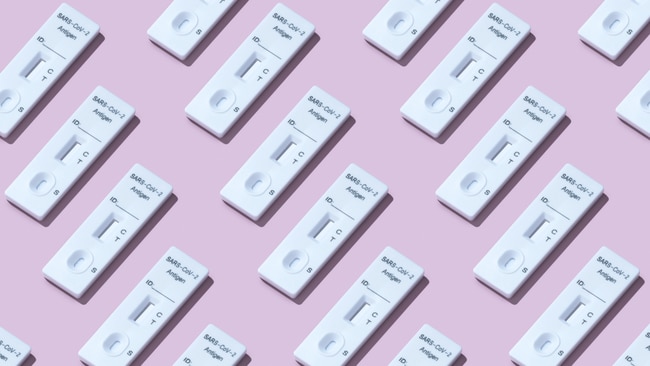What do Covid symptoms actually look like in 2024?
Is summer Covid back?

Lifestyle
Don't miss out on the headlines from Lifestyle. Followed categories will be added to My News.
Many of us haven’t been concerned about Covid for months or even years, but as summer festivities bring big groups together, which symptoms are just your body being run down and which could be Covid making a comeback?
The holiday season means work Christmas parties, big group events, and festivals come back – and less excitingly for me, usually Covid.
Around this time for the last couple of years, I’ve gone to every event I can, and by about January, I’ve been sent to bed with a fever and cold symptoms.
Many of us have almost forgotten about Covid, as no one maintains personal space anymore, the beloved table QR codes have gone from many restaurants, and people just cough into their neighbour on the train with no shame.
So what does Covid actually look like now?
Of course at-home test kits are still available if you want to check the specific diagnosis of your illness, but if you need a refresher on what the most recent strain of Covid actually looks like, here’s how to tell if you’re sick with the virus.

What do Covid symptoms look like now?
Despite many of us not even thinking about getting an additional vaccine for the last couple of years, Montefiore Einstein’s infectious disease physician Inessa Gendlina told Allure “The disease has certainly evolved and changed, thankfully, from what we saw in the spring of 2020. However, it remains a serious illness.”
She said the illness can still hit people hard, explaining “People feel pretty sick with Covid, with high fevers, muscle aches, and respiratory symptoms”.
Infectious disease physician and assistant professor from the Icahn School of Medicine at Mount Sinai, Rebecca Choudhury added that people can still come down with a "Fever, chills, headache or body ache, nasal congestion, sore throat, and cough" when battling the virus.
Mary Gover is an internal medicine physician and associate professor at Albert Einstein College of Medicine. She said Covid can also cause "Tiredness, runny nose, loss of taste and smell, and digestive symptoms including nausea, vomiting, and diarrhoea."

Do we still need to stay up to date with Covid vaccines?
Gendlina said though “We have a lot of natural immunity from people who had Covid or are vaccinated”, that immunity only lasts for around three months for people who don’t have underlying health issues. She urged people to stay up to date with their booster shots as “Updated Covid vaccines, similar to flu vaccines, are better designed to match the currently circulating variant and induce [protective] immunity”.
She told the publication that people who are unvaccinated can still have more severe cases of the virus, saying they “can develop severe disease and become very ill”, especially if they have underlying medical conditions.
Gover agreed, saying that even though vaccinated and unvaccinated people can have similar symptoms, “Vaccination has been shown to significantly decrease the severity of COVID-19 symptoms, reducing the risk of hospitalization and death from infection.”

What to do if you get Covid this Summer
Covid symptoms overlap with many other common illnesses like the flu, colds and sinus infections, so it’s a good idea to do a rapid test yourself and pay your GP a (phone) visit if it comes back positive and your symptoms are pretty severe.
Gover recommended staying home and resting until you’ve been fever-free for a day, and wearing a mask if you can for five days. Also, remember social distancing? Try to stay away from people as much as you can for those five days to avoid people around you also coming down with symptoms over the festive period.
Fingers crossed for a Covid-free Summer in 2025.
More Coverage
Originally published as What do Covid symptoms actually look like in 2024?





